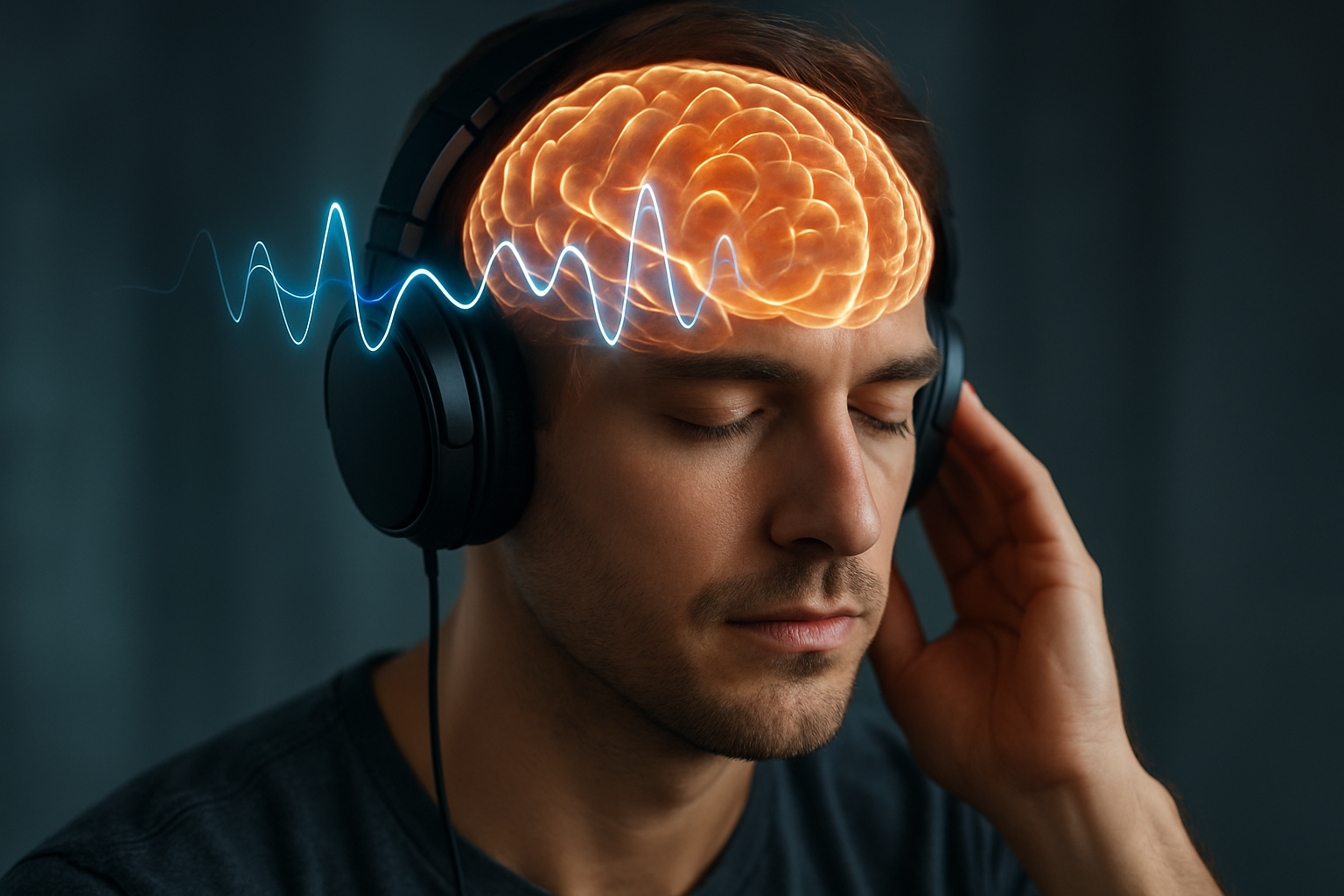Binaural Beats: Tuning Your Brain for Optimal Well-being
Can sound waves really influence your mental state and overall health? Imagine a world where you could enhance focus, reduce stress, and improve sleep quality just by listening to specific audio frequencies. Welcome to the intriguing realm of binaural beats, a cutting-edge wellness technique that's captivating health enthusiasts and researchers alike.

This phenomenon was first discovered in 1839 by Heinrich Wilhelm Dove, a Prussian physicist and meteorologist. However, it wasn’t until the late 20th century that researchers began to explore the potential cognitive and physiological effects of binaural beats. The key lies in how these beats interact with brainwave patterns, potentially influencing states of consciousness and mental functioning.
Brainwave Entrainment and Cognitive Effects
The human brain operates at different frequencies depending on our state of consciousness. These brainwave patterns range from delta waves (0.5-4 Hz) associated with deep sleep, to gamma waves (30-100 Hz) linked to peak concentration and cognitive performance. Binaural beats are thought to work through a process called brainwave entrainment, where the brain’s electrical activity synchronizes with the perceived beat frequency.
Research has shown promising results in various areas of cognitive function. A 2019 study published in the journal Psychological Research found that listening to alpha-frequency binaural beats (8-12 Hz) for 10 minutes before a cognitive task improved participants’ attention and working memory performance. Another study in the Journal of Alternative and Complementary Medicine reported reduced anxiety and increased mood states in participants who listened to theta-frequency binaural beats (4-8 Hz).
Potential Health Benefits and Applications
The applications of binaural beats extend beyond cognitive enhancement. Here are some areas where this technology shows promise:
Stress Reduction and Relaxation
Binaural beats in the alpha and theta ranges have been associated with increased relaxation and reduced stress. A study published in Alternative Therapies in Health and Medicine found that participants who listened to delta-frequency binaural beats experienced significant reductions in trait anxiety and an increase in quality of life.
Sleep Improvement
Delta-frequency binaural beats, which mimic the brainwave patterns of deep sleep, may help improve sleep quality. A 2018 study in Frontiers in Human Neuroscience reported that participants who listened to delta binaural beats before sleep experienced improved sleep quality and reduced time to fall asleep.
Pain Management
Some research suggests that binaural beats may have analgesic effects. A study published in the Journal of Pain Research found that listening to theta-frequency binaural beats reduced the perception of pain in individuals with chronic pain conditions.
Meditation Enhancement
Binaural beats are increasingly being used as a tool to enhance meditation practices. By inducing specific brainwave states associated with deep relaxation and focused attention, they may help both novice and experienced meditators achieve desired mental states more easily.
Challenges and Considerations
While the potential benefits of binaural beats are exciting, it’s important to approach this technology with a balanced perspective. Some challenges and considerations include:
-
Individual Variability: Not everyone responds to binaural beats in the same way. Factors such as hearing sensitivity, personal preferences, and existing brainwave patterns can influence effectiveness.
-
Quality of Research: While many studies show promising results, more large-scale, controlled trials are needed to fully understand the effects and optimal applications of binaural beats.
-
Potential Side Effects: Some individuals may experience mild side effects such as headaches or dizziness when using binaural beats, particularly at higher frequencies or for extended periods.
-
Integration with Other Practices: Binaural beats are most effective when used as part of a holistic approach to health and wellness, combining them with other practices like meditation, regular exercise, and a balanced diet.
Binaural Beat Basics: Tips for Optimal Use
• Start with shorter sessions (10-15 minutes) and gradually increase duration
• Use high-quality headphones for the best effect
• Experiment with different frequencies to find what works best for you
• Avoid using while driving or operating machinery
• Combine with mindfulness practices for enhanced benefits
• Stay hydrated and in a comfortable position while listening
• Be consistent in your practice for best results
As we continue to explore the frontiers of neuroscience and wellness, binaural beats represent an exciting intersection of technology and human potential. While not a magic bullet, this auditory technique offers a unique, non-invasive approach to influencing our mental states and potentially improving various aspects of health and well-being. As research progresses and our understanding deepens, binaural beats may become an increasingly valuable tool in our quest for optimal cognitive function and holistic health.






